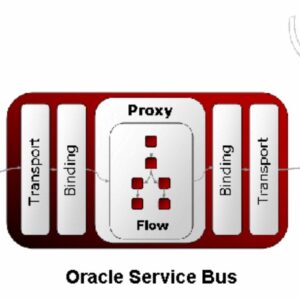Mode of Training
LIVE ONLINE TRAINING
Curriculum
INTRODUCTION TO ORACLE PERFORMANCE TUNING
• Tuning Overview
• Oracle Tuning Process
• Setting Suitable Goals
• Tips for Avoiding Problematic Queries
• Syntax Considerations
• Programming Standards
• Isolate a Performance Problem
• Analyze a Problem SQL Statement to Determine the Nature of the Problem
TOOLS FOR EVALUATING SQL STATEMENTS
• Overview of SQL Statement Tuning
• Tools to Assist in SQL Tuning
• Use Explain Plan, Autotrace and SQL Trace to Examine the Execution of a SQL Statement
• Interpreting a SQL Trace
OPTIMIZER STATISTICS
• Cost-Based Optimizer
• Analyze and Use System Statistics
• Managing Statistics with DBMS_STATS
• Automatic Statistics Gathering
SORTS
• How Oracle Processes Sorts
• Temporary Disk Space Assignment
• SQL Operations that Use Sorts
INDEXES
• Index Overview
• B*Tree Indexes
• Access Paths with Indexes
• Index Scans
• Conditions That Stop Indexes Being Used
ADVANCED INDEXES
• Bitmap Indexes
• Key Compressed Indexes
• Index Organized Tables
• Function Based Indexes
• Descending Indexes
• Invisible Indexes
JOIN OPERATIONS
• Understand Access Paths
• Joining Tables
• Nested Loops Join
• Merge Join
• Cluster Join
• Hash Join
• Anti Join and Semi Join
• Outer Joins
• Star Join
• Improve Optimization with Different Access Paths
SQL TUNING ADVISOR
• The DBMS_SQL_TUNE Package
• Using the SQL Tuning Advisor with SQL Developer
SQL PLAN MANAGEMENT
• Use SQL Plan Management
• Adaptive SQL Plan Management
• Adaptive Query Optimization
SEQUENCES AND VIEWS
• Sequence Caching
• Views
• View Merging
• Inline Views
USING HINTS
• Using Hints to Influence Execution Plan
• Optimization Mode and Goals
• Access Methods
• Query Transformations
• Join Orders
• Join Operations
• Hint Examples
MISCELLANEOUS
• Array Size
• Bind Variable Usage
• Adaptive Cursor Sharing
• Result Caching
Benefits of Certificate
Skill Development: Certificates often require participants to acquire and demonstrate specific skills and knowledge. This can lead to improved competence and expertise in a particular area.
Career Advancement: Many certificates are directly related to specific careers or industries. Earning a relevant certificate can enhance your qualifications and make you a more attractive candidate for job opportunities or promotions.
Professional Recognition: Certain certificates are widely recognized and respected in specific fields. Earning such certificates can enhance your professional credibility and reputation.
Specialization: Certificates allow individuals to specialize in a particular area or aspect of a field, enabling them to focus on their areas of interest or expertise.




